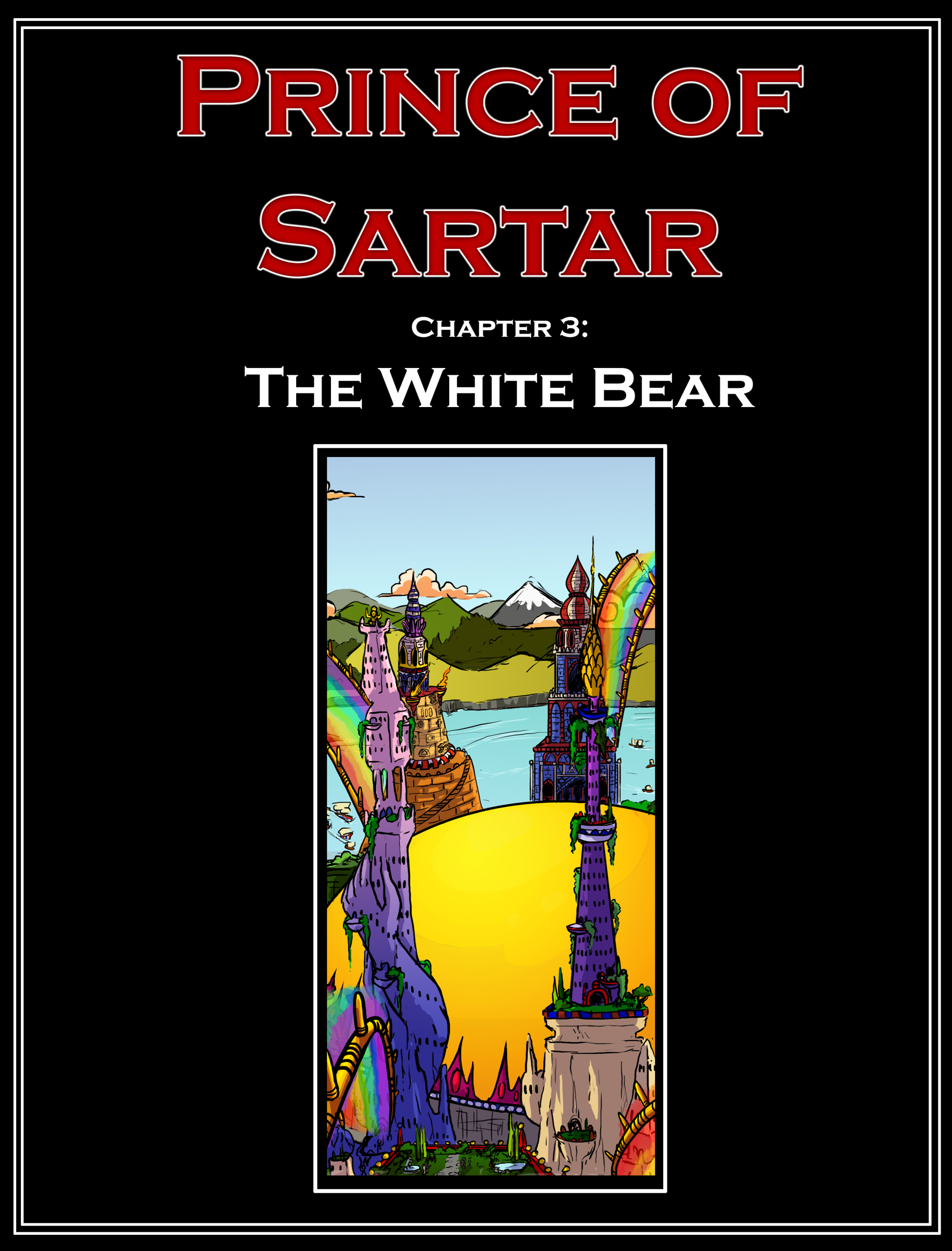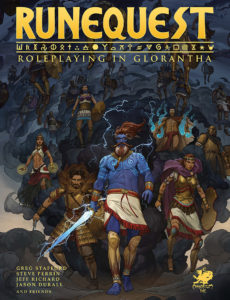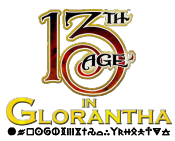Prince of Sartar
How one man became a god
There are currently no widgets assigned to the left-sidebar, place some!
Once you add widgets to this sidebar, this default information will go away.
Widgets can be added by going to your dashboard (wp-admin) ➔ Appearance ➔ Widgets, drag a widget you want to see into one of the appropriate sidebars.
Once you add widgets to this sidebar, this default information will go away.
Widgets can be added by going to your dashboard (wp-admin) ➔ Appearance ➔ Widgets, drag a widget you want to see into one of the appropriate sidebars.
Languages
Prince of Sartar is an epic story of the Hero Wars set in Greg Stafford's Glorantha.
By Jeff Richard and Kalin Kadiev.
Curious about Glorantha?
Chapters
Recent Comments
- jaguar on 119 – Time to rest
- Colie Dillon on 119 – Time to rest
- Steve S. on 119 – Time to rest
- Oliver Dickinson on 119 – Time to rest
- greattsathoggua on 119 – Time to rest







?! Is that a Sun Dome Temple?!
Not quite – it’s the City of Wonders in the Mirrorsea Bay.
This chapter is going to be awesome. Epic epicness of epicity. I can’t wait!
It’s going to be very tragic. I always felt that the sacking of the City Of Wonders was one of the great tragedies of the Hero Wars.
The sad petering out of Yegg’s Islanders’ aspirations on the plains of Pamaltela, that’s the tragedy.
One of my Gloranthan heresies – In my Glorantha, Argrath doesn’t return with Sheng Seleris – he returns with Belintar, who has learned deep mysteries from his dismemberment in the Underworld.
I sometimes wonder what it was that was so untenable about Belintar’s Holy Country. Looking back to the two previous ages, we always find lots of fault on both sides. Nysalor enabled his followers to aquire Chaos as a tool, and Arkat brought bloodshed, eternal curses, and in the end took on the mantle of Chaos, too.
In the Imperial Age, the God Learners committed great wrongs, and so did the EWF.
In the Third Age, we all know about the Lunar Enlightenment and the dark side of the moon. However, the contemporary realm doing creative heroquesting wasn’t Sheng’s (which lasted a mere century, even though surpassing the God Learners in extent), but Belintar’s.
The Holy Country brought one world-changing magic – Dormal’s Opening. After encountering the Kralorelan fleet, Dormal’s successors were satisfied with their trading post in Dosakayo. In its overall effect, the Opening (and the related Thawing, performed by both Dormal and the Lunars) appears to be beneficient. (It does release the Kingdom of War, though, as well as Harrek.)
Belintar’s culture of advanced heroquesting also brought forth the Sartar Dynasty and Argrath, even though that positioned the Sartarites rather as antagonists than as followers of the Godking.
Sure, Belintar did a lot to annoy the traditionalists (read: those in power before his arrival): He did alter all of the Sixths. He also went a long way to appease them, which may have annoyed the ultra-traditionalists even more while eroding their less fanatic supporter base. While occasionally ruthless, the overall impression of Belintar’s Holy Country is that it did at least attempt to become a benevolent and holy place.
What’s so sinister about that?
Ultimately, Glorantha does become doomed with Agrath killing the gods if you follow Greg’s canonical vision. But this is where I as a GM have to part with Greg, and for -my- Glorantha, say, ‘no, this is too much tragedy, bad guys winning is too much, this is wrong, no matter how beautiful the tragedy is, Greg, you’re wrong for my table.’ So, in my Glorantha, Belintar returns, not Sheng Seleris, and the City of Wonders stays, but with different and not necessarily entirely good circumstances. Your Glorantha May Vary.